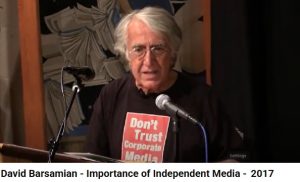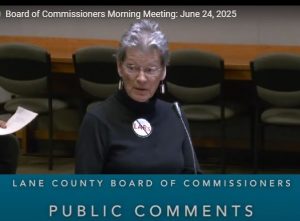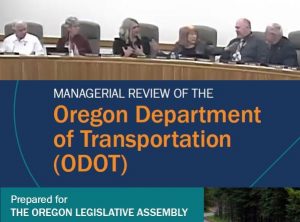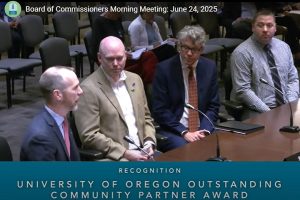NLC shares tips for hosting election forums
10 min read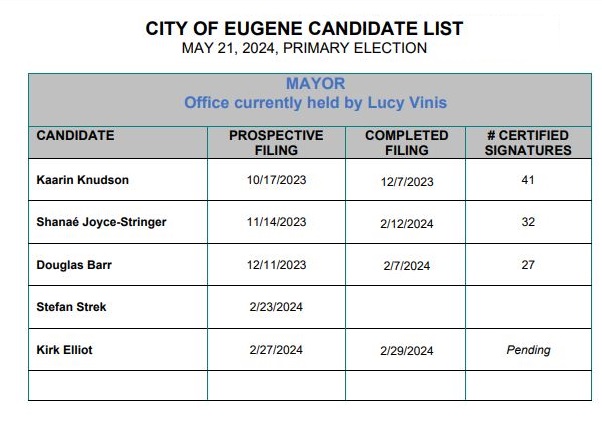
The Neighborhood Leaders Council offers some dos and don’ts for hosting a candidate forum. On Feb. 27, Jon Belcher and Sandra Bishop:
Sandra Bishop (Jefferson Westside): My name’s Sandra Bishop, and the purpose for a neighborhood having a candidate forum is usually twofold. It’s to look at, you know, who’s running for what office, but the primary purpose is to get more people to come to your neighborhood association meeting. You will oftentimes get people at candidate forums that have never been in the neighborhood before.
[00:00:35] The second point is: Determine which races are relevant to your neighborhood. Mostly you probably want to do city council and mayor. You may or may not want to do, occasionally, a state race, but for tonight’s purpose with such short time, I’ll talk about city council and mayor only.
[00:00:55] Identify who is running. You think that’s easy. It’s not easy. Candidates have to file. Anyone can declare themselves, ‘I’m a candidate, I’m running for mayor.’ That’s not true. You have to really look carefully, and you have to go to only primary sources for who is a candidate.
[00:01:22] You cannot look at a document that someone sends around says, ‘Oh, look, these are the people running for this office.’ You have to go to two places:
[00:01:29] City of Eugene City Recorder, Katie LaSala, keeps a list, and it changes. Three days ago there were three people running for mayor. Yesterday there were four, today there are five; but only three of them are actual candidates that you would invite to a candidates forum because they have gone through this three-step process:
[00:01:56] They’ve done a ‘Prospective Filing,’ then they have gone out and gathered signatures and they brought the signatures in, then they’re listed in a new column as ‘Completed Filing.’ It’s not really completed. There’s a third column. Only when there’s a number in the third column are they candidates. It tells the ‘# Certified Signatures,’ then they’re really a candidate.
[00:02:24] And you can see that there’s lots of people running and they’re in various states of, you know, are they a candidate.
[00:02:33] So the other really critical thing is in order to really respect the diversity and inclusiveness of the city, you have to get the information to contact these people from an official source. There are two sources.
[00:02:53] Number one, Katie LaSala will give you the ‘SEL 101,’ which is the filing form that any candidate for city office has to fill out. And on that form, you will see that there is the official information that the candidate gave to the city.
[00:03:17] To call Kaarin Knudson, who’s a candidate for mayor, I can’t use my personal contact information for her. That’s not fair. The other candidates for mayor, I don’t have their personal information. So in order to really be fair, we have to use this official information.
[00:03:37] So this is Lisa Warnes’s SEL 101, and it’s got the telephone number, the email, and so this is where you would go. It’s the city’s document. You do have to go through a records request. This is the local source.
[00:03:55] The other source is (Oregon) Secretary of State Elections. ORESTAR is a very sophisticated system online. Every candidate is going to have an ORESTAR account if they are going to spend more than $750. There’s another form, it’s an ‘SEL 220.’ Every candidate spending over $750 is going to have a candidate’s statement of organization.
[00:04:25] So (displaying form), this is Lisa Warnes’s statement of organization. And on this, it’s going to show you the name of the campaign. It’s going to show you the treasurer. It’s going to give campaign information. It’s going to give the candidate’s information, so you have at least two or three to four ways to contact them.
[00:04:46] So, if we really respect people, we will only use these sources, not our informal networks.
[00:04:53] So if you’re going to hold a candidate forum, you want to hold it after the deadline for filing because you won’t know who the candidates are. So you have to wait ’til after the deadline which is March 6 and before the (local) ballots are mailed, which is May 2. If you wait until after the ballots are mailed, it’s like, ‘Eh, too late.’ You’ve got to pick it between those two times.
[00:05:18] So, what is a candidate forum? We’re finally there. A simple candidate forum is: Invite the candidates in a really equitable way. Keep a written record. Do not call one candidate on the phone informally and then say something different to another candidate. Keep a written record. You send emails, send something in writing, and say the same thing. Give the same information to all the candidates.
[00:05:48] So, A simple model is three minutes for an opening statement and then Q&A. Two minutes for closing statements. That’s it.
[00:05:58] Do the questions in writing. If you need to, you might have to bring in a third-party moderator. JWN (Jefferson Westside Neighbors) chair is running for a council seat. I’m putting together that forum. I’m bringing in a completely impartial member of the press to be the moderator for the Q&A. We’re not even going to look at the questions. So you’ve got to do that to be fair. That’s really about it.
[00:06:28] John Q: When publicizing the forum, the neighborhood association should also be fair.
[00:06:35] Jon Belcher (River Road): And that being fair also extends to your communications out to the neighborhood, so as neighborhood associations, we can’t endorse anybody and we can’t endorse any positions.
[00:06:47] John Q: They said it’s also important for your neighborhood to decide how to handle situations before they come up.
[00:06:54] Sandra Bishop: What are the weird things that might come up? What are you going to do if there’s two candidates running for office and one of them will not participate in the candidate forum?
[00:07:09] You have to make that kind of a decision. Other groups that I work with used to say, ‘No. If we can’t get all the candidates, we’re not going to do it.’
[00:07:19] Another organization that I work with said, ‘We’re only going to take the real candidates. We don’t want the 12 who are running against the two primaries. We’re just going to do the primaries.’
[00:07:28] We can’t do that. You’ve got to invite them all, get them all there. And if you can’t get someone to come, you don’t want to allow them to cancel your forum. We may have a situation of, it’s becoming a tool that certain parties are willing to use, to try to shut someone down.
[00:07:48] And if you’re the underdog, you’d love to not have the frontrunner. But those are the things you’re going to have to do.
[00:07:56] What would you do if on the day of the candidates’ forum, someone showed up and said, ‘Hi, I’m George and I’m the candidate’s brother. I’m the person that’s running the campaign. He had to go visit his grandchildren.’
[00:08:09] What would you do? Would you take a surrogate?
[00:08:13] It’s up to you as a neighborhood leader. It’s up to you. And it’s not fair. It’s simply not fair. It’s not fair to have someone else represent the candidate.
[00:08:27] Tai Pruce-Zimmerman (Active Bethel Community): Or, if you know in advance that you would want to accept that, you could put it in the initial invitation that you send to everyone. You know you want to allow surrogates. You can make that clear to all candidates from day one. If you didn’t, then it’s not fair.
[00:08:42] Sandra Bishop: Perfect point. Exactly right. You can’t treat candidates different. You need to set this up. It needs to be tight. It really needs to be tight to be equitable. And it’s about equity. It’s about fairness.
[00:08:56] And here’s another situation. What would you do if you heard so-and-so had a heart attack and they’re not going to be running? What was the source of that information?
[00:09:05] Informal, out in the community, people talking: I still have to invite that person. It could be a campaign ploy from an opposing candidate. So you’ve got to just—you’ve got to treat it like a business decision to be very fair.
[00:09:24] You want to have people there to be able to ask as many questions as possible.
[00:09:29] And if you don’t have an impartial set of moderators, find somebody who’s got some experience moderating. You have to cut people off. Sometimes you have to cut candidates off. They will talk forever, and so usually one thing to do, one possibility we might look at is having a one-minute response from the candidates.
[00:09:52] It’s a lot better if you have cards where you can hold the card and say, you know, 30 seconds or something, and speakers usually really appreciate that kind of timing.
[00:10:05] Dennis Hebert (Southeast Neighbors): Well, one thing I found at our candidate forum is that people would ask, like, multiple questions that would lead from one thing to another. So we had them write them down the next time on a card, one question each, because that can really evolve into something else. We had a timer—had a person with a timer. When the time was up, time was up.
[00:10:26] John Q: What about providing questions to the candidates in advance?
[00:10:31] Sandra Bishop: Oh, that’s really up to the group. Some people do, some people don’t.
[00:10:35] Yeah. And it’s interesting. Oh, thank you for the question about questions. You’re never making to get all the questions answered. They might not even get the time to ask all the questions.
[00:10:48] And when you have a moderator, you lose a little bit of control because the moderator, if they’re a professional moderator, they’re going to have their own questions, so there’s going to be people that don’t get their questions answered. So it’s really good, especially in this day and age, with websites, you can say, ‘We’ll follow up.’
[00:11:06] And the candidate will post your questions, any questions you didn’t get answered, we can post them or if you can push it back to the campaign and say, ‘Hey, you know, can your campaign answer these questions?’
[00:11:19] John Faville (Northeast Neighbors): We have a mayoral candidate forum set up for April 16. We are going to handle questions the way we’ve done with city councilors, which is to vet them within the community, gather and then refine the list, and give them to the candidates the day before the forum. And we find that works terrifically because then no one’s taken by surprise. They’ve been able to come in with gathered thoughts.
[00:11:45] Sandra Bishop: That’s wonderful. Yes, it’s really up to the individual group.
[00:11:50] The League of Women Voters, you can actually call on the League of Women Voters to co-sponsor or even just come in and vet questions.
[00:12:01] Two people sit at the table, the questions come in as they’re written and then the two people look at them—you need at least two people—and it’s done at the time in the presence of the people in the room so they can see what’s happening and they rewrite it, so the person moderating can read it.
[00:12:21] Randy Prince (Amazon Neighbors): On the vetting, you want people who are fairly knowledgeable about the office and the responsibilities, ’cause one of the most common things, people ask a question about an important issue that actually the office they’re running for doesn’t have anything to do with.
[00:12:36] Tai Pruce-Zimmerman: I just wanted to make an observation that this whole list of guidelines (which I don’t have anything to add to, great collection), you might have seen at some point, a forum that didn’t follow all of these guidelines. And so I wanted to point out, these are how to run an objective, impartial forum which as neighborhood associations absolutely should be our goal.
[00:13:00] There are, every election cycle, forums that are run by private groups that have an agenda and they don’t always run their forums impartially because they have an agenda. And they can do that, but that’s because they’re a private group. We’re not. So that’s where if you’re hearing anything that just doesn’t quite jive with forums you’ve seen in the past, that may be the sticking point of the difference.
[00:13:30] Jon Belcher: The other final, final thing I will say is, as far as the ballot measures go, it’s often difficult to find a pro and a con. So, one option is to get a hold of the League of Women Voters and ask if they can send an impartial presenter who can talk to the issue in front of you and hopefully not see one way or the other.
[00:13:52] So, that might be one way to deal with something like the (Eugene Public) Library or the 4J (school district) money initiative.
[00:13:59] John Q: Because Eugene has nonpartisan offices, its election in May isn’t called a primary but a qualifying election.
[00:14:07] Sandra Bishop: It’s called a qualifying election, which means you qualify for the November ballot.
[00:14:15] If anyone (no matter how many candidates there are), if anyone receives more than 50 percent, they are the only name that appears on the November general election ballot.
[00:14:28] And then if there are three or four people and nobody gets a majority, it would be the top two.
[00:14:34] And that can be confusing. And it’s really weird when you run unopposed and you win, but you still have to be on the November ballot. That’s the way it works.
[00:14:44] John Q: Sandra Bishop, Jon Belcher, and the NLC share best practice for candidate forums:
- Reach out to candidates through official election records, not word of mouth or your personal contact list.
- Be fair to all candidates before, during, and after the forum.
- Communicate in writing so you can show all were treated equally.
- Assign a timekeeper and two people to review questions to help your moderator.
- You can also call in neutral helpers, like the League of Women Voters, or moderators with experience.
- And ask attendees to sign in when they arrive, so you can invite them to more neighborhood meetings.
